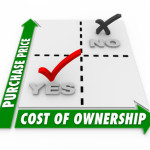
How to Stop Spending Money For Rent, Instead Own
It are explained here in this post in a 7 Step Plan that is easy to understand and hard on your pocket-book if you don’t. This information will save you time and money if you take the time to read and understand not all real estate agents and lenders are the same. You need someone in your corner when you get in the ring of the real estate market in Silicon Valley.
If you’ve always rent your home, buying a home can seem like a monumental undertaking. This report provides the home buying process clearly and in detail for you.
Seven Steps to Transition from Renter to Homeowner
Step One: Identify Your Needs and Wants
Begin your search by knowing the kind of home you need and want. Write down your specific requirements, such as the number of bedrooms, size of yard, floor plan, location, schools, etc.
Step Two: Know How Much You Can Afford
Consider your whole financial picture. Determine what monthly house payment you can afford. Most mortgage consultants advise limiting your payment to no more than one-third of your net monthly income. If you’re unsure, contact a mortgage consultant to assist with the calculations. Even we here at Cliff Keith and Team can help.
Step Three: Get Pre-Approved By a Mortgage Consultant
When you know in advance the amount of loan you can obtain, you can focus on searching for houses in your targeted price range. This can save you time and money when you find that perfect home, because sellers favor buyers who are pre-approved and ready to buy.
Experienced mortgage consultants will specify loan programs that are best for you. By taking a look at your financial buying power and your credit history, a mortgage consultant will tell you if you qualify for the home you want and will find the exact loan, which best suits your needs.
For the approval process, you and your mortgage consultant will complete the required documentation. Then submit those documents to an underwriter for approval. A pre-approval is an actual loan commitment from a lending institution. This means that you qualify for a loan. Talk to your mortgage consultant about the costs and time involved to secure pre-approval.
Step Four: Work With an Experienced Real Estate Consultant
You can learn a lot about any real estate consultants by talking to them about their experiences in the business. In a short time, you’ll be able to determine if they’re the right person to meet your needs. Most are very good and informed about the home buying process, however, there’re dummies where-ever you go.
Questions for Agents: These are some question you may wish to ask any real estate consultant you may want to consider to work with during your home buying process.
1. In what areas of town and price ranges do you specialize? (Keep in mind that some agents specialize in only one area or one price range.)
2. My objective is to buy a house by (your move-in date). How will you help me achieve this goal?
3. How often will you update me with new property listings?
4. How will you communicate with me? (Personal Organizer, Email, Text, Phone) How often?
Step Five: Tips for Successful House Hunting
1. Keep an organized record of your research on homes as well as paper-work given to you by vendors. Write down comments about each home you see. (One word descriptions are best.) Keep track of your likes and dislikes and tell your real estate consultant what they are.
Some home buyers are reluctant to tell an agent what they really think of a house. There are several reasons why like they may think the agent might take it personally. Remember, the homes don’t belong to the agent! You agent can help you the most by knowing what you want your home, so tell them.
2. Make sure your agent is aware of your time schedule and expectations of them. Do you like to look at one or two homes per session? Four? Eight? Discuss this with your agent what is best for you. After all they are trying to help you achieve your goal of home ownership.
There’s more…
3. Tell your agent about any homes you see that interest you and that you’d like to know more about. This includes homes you’ve “discovered” on your own while exploring the area like and those you might see advertised in the newspaper and on the Internet.
4. If you like to spend time driving around by yourself looking at houses, ask your agent for a list of homes for you to consider first from the curb. Your agent will make an appointment to show you the inside of the home that appeal to you.
5. It’s important to know up front who your agent represents. Some agents work only for the seller other for the buyer and some agent work for both the buyers and the sellers. Make sure you find out who is working for you.
Step Six: Make a Purchase Offer.
Work with your real estate consultant to determine the most appropriate purchase offer. There are several ways to accomplish this, however a Comparative Market Analysis, CMA, is the most current way to determine value of a home. After looking over the CMA your agent will present your offer to the sellers.
Step Seven: Save on Your Initial Investment and Monthly Payments
There are two investments when buying your home. These are the initial investment, which includes the down payment and closing costs, and the monthly payment, which includes principal, interest, taxes and insurance (PITI). Listed below are so items to consider about your initial investment and your monthly PITI.
Initial Investment
1. Choose a low or zero down payment loan. You don’t necessarily have to put 20 percent or even 10 percent down. You can pay 5 percent, 3 percent, or even zero down on some loans. There are of late down-payment assistant loans as well as loan with “Grants” provided. These are sweet loans and are aimed at first time home buyers. There are certain rules that apply but if you qualify you will save anywhere from 3.5% to 5.0%!
2. As part of your offer, ask your real estate consultant about the seller’s paying some of your closing costs. They may even carry-back a 2nd deed of trust for you.
3. Shop around for your homeowners’ insurance. A little comparison shopping will save you money. Be proactive with any fixed expenses associated with being a home owner.
4. You may be able to deduct money paid for discount points from your gross income before computing your tax. See your CPA for more information. If you don’t have one, now is the time to shop for one. They can save you money over the long haul.
Monthly Payments (PITI)
1. If at all possible get a loan that doesn’t have monthly mortgage insurance, (MI) premiums. Sometimes you may be able to reduce or eliminate them by paying a little more at closing. Ask your mortgage consultant about the various options for MI. By putting 20 percent or more down, you can eliminate them entirely. Recently lenders have kept MI for the life of the loan. The only other option was to refinance your mortgage. Avoiding refinancing is always a good idea.
2. Take advantage of rate lock programs that are available. You can generally lock in a low interest rate 30 to 45 days in advance. Secure an appraisal before you lock in a rate. If rates are dropping it good to ride them down. If rates are rising or expected to go up, locking the loan is a good idea
3. Remember that interest payments on a primary residential mortgage are deductible on your personal income taxes. As well are your property taxes. Tax rates definitely favor homeowners and is one of the main advantages of home ownership. Be sure to declare both your mortgage interest and property taxes when you file your personal income tax returns. You will be glad you did.
4. Consider an adjustable-rate-mortgage if you want to buy a home you may not qualify for with a fixed-rate-loan. Adjustable-rate-mortgages (or ARMs) can be as much as 3 percent lower than fixed rates. The difference can change your debt to loan ratios to a point where you can afford to purchase with one over the other. Smart home buyers choose this option when they’re in a position to refinance should the adjustable rate rise sharply.
What to do next?
At this point I would like to ask for your help. If you hear of any of your friends, neighbors, work associates or loved ones who could use help on buying or selling their home would you feel comfortable in introducing them to me so that I may help them like I have other since 1976?
If you should know of anyone who needs my help what I would like you to do is; pick up your cell phone, look up my number (650-346-7366), and call me immediately. Together we will determine the best way for me to speak with them so that I may help them with my advice so they will be able to accomplish their real estate goals in the best way possible. Thank you. Cliff
